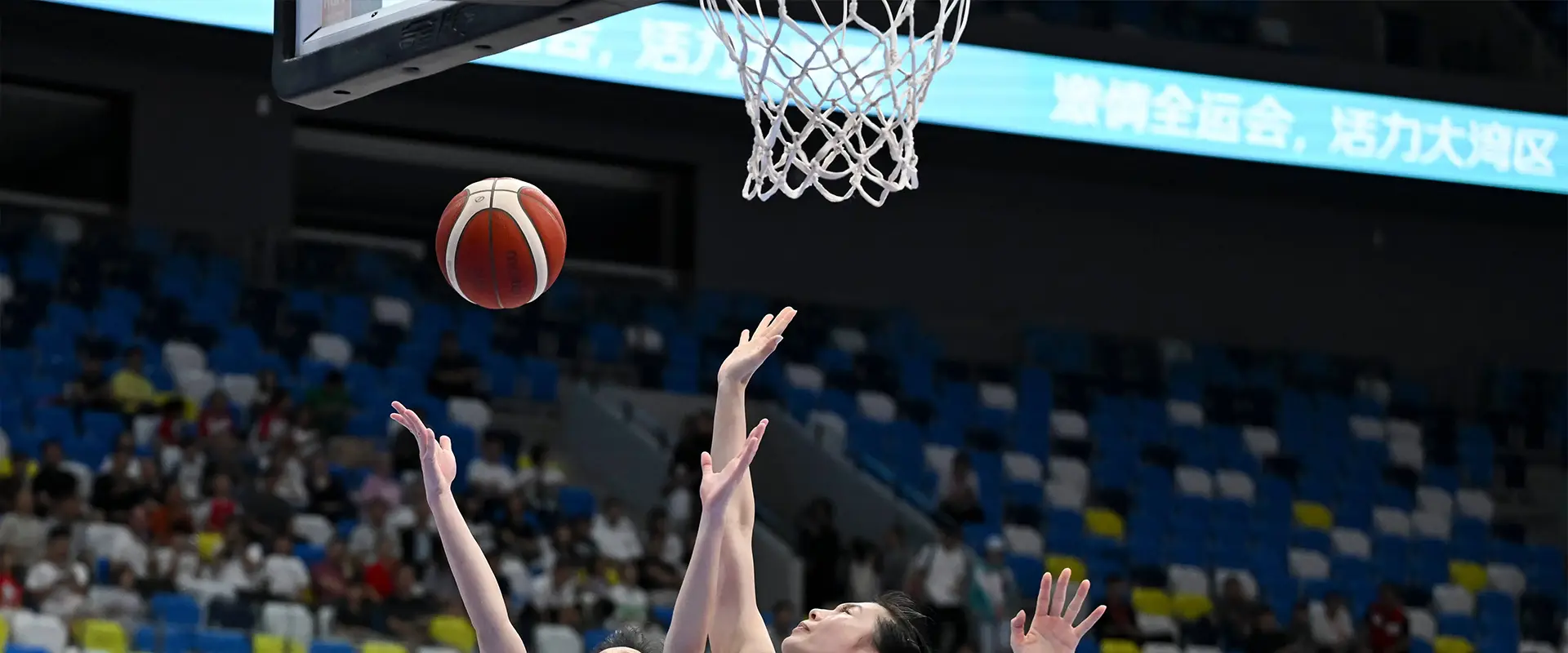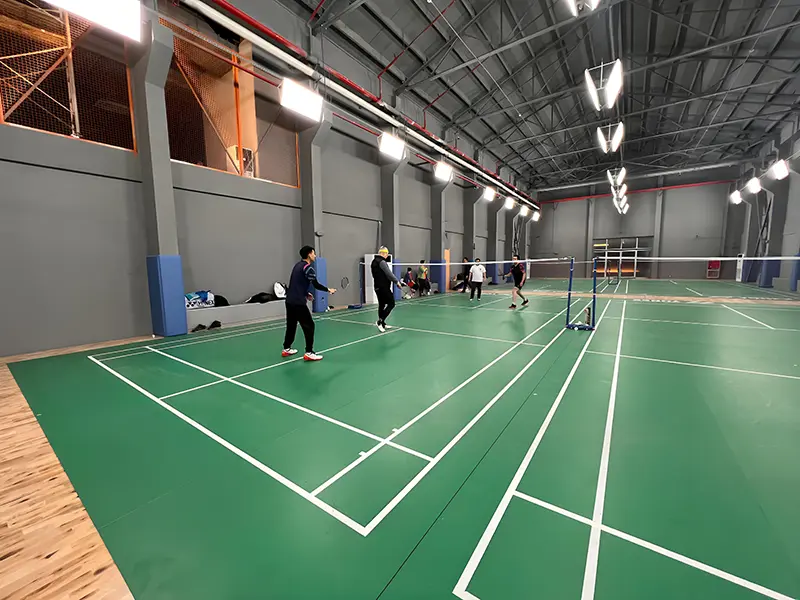Stable commitment to every leap, customized every flat
Blog


Stable commitment to every leap, customized every flat
Blog

For global sports courts, indoor sports facilities have specific lighting requirements, with different sports demanding distinct illumination conditions that must strictly adhere to internationally recognised standards. This directly impacts sporting safety, competition fairness, and athletes' performance. For sports such as badminton, basketball, volleyball, and table tennis, lighting brightness must be promptly adjusted after the installation of pvc vinyl sports flooring materials. To this end, Dongxing outlines the lighting requirements for indoor sports flooring post-installation, facilitating optimal indoor venue construction.

| Sports | Application Scenario | Average horizontal illuminance (Lux) | Lighting uniformity (min/max) | Glare value (GR) | Color rendering index (Ra) | Color temperature (K) | PVC sports flooring collaborative solution |
| badminton | Competition training | 1000 | ≥0.8 | ≤40 | ≥80 | 4000-6500 | Green crystal sand to enhance contrast; NBR backing layer pvc floor to stabilize the floor |
| Daily leisure | 500-750 | ≥0.7 | ≤50 | ≥70 | 3500-6500 | The matte surface reduces the interference of strong light during training and is suitable for multi-time use | |
| basketball | Competition training | ≥1500 | ≥0.8 | ≤40 | ≥80 | 5000-6000 | The blue/red floor clearly demarcates the boundaries of the venue; high elasticity absorbs vibrations |
| volleyball | Competition training | 1000-1500 | ≥0.8 | ≤40 | ≥80 | 4000-6500 | The anti-slip surface combined with uniform lighting reduces the risk of athletes slipping when making saves. |
| table tennis | Competition training | 1000 (table surface) | ≥0.9 | ≤30 | ≥90 | 5000-6000 | The smooth surface ensures even light reflection without any dark corners |
| Daily training | 750 (table surface) | ≥0.8 | ≤40 | ≥80 | 3500-6500 | Anti-fouling surface to avoid local reflection differences caused by water stains |
These standards, established by authoritative bodies including the International Commission on Illumination (CIE), the International Basketball Federation (FIBA), the Badminton World Federation (BWF), and the International Table Tennis Federation (ITTF), primarily address four core issues:
Eliminating visual blind spots: Sports like badminton (shuttlecock speeds up to 426 km/h) and table tennis (ball speeds up to 112 km/h) involve rapid rhythms where athletes must visually judge object trajectories swiftly. Insufficient or uneven lighting creates shadows, glare, or dim areas, leading to misjudged distances.
Ensuring fairness: In official competitions, lighting discrepancies can directly influence match outcomes. The CIE 1983 standard and FIBA 2004 guidelines explicitly stipulate ‘minimum average illuminance’ (e.g., 1000 lux for professional basketball) and ‘vertical illuminance’ (ensuring moving objects remain visible from multiple angles).
Avoiding Penalties for Non-Compliance: Commercial sports venues must meet local lighting regulations to obtain operating licences. For instance, the EU EN 12193 standard requires indoor courts to have a glare rating (GR) ≤50, while China's JGJ 354-2014 specification mandates a colour rendering index (Ra) ≥65. Failure to comply may result in fines, mandated rectifications, or even suspension of operations.
Extending PVC vinyl sports flooring lifespan: Substandard lighting accelerates PVC floor degradation: dim conditions increase athlete missteps causing localised wear; unfiltered UV light causes standard PVC to fade and age prematurely.
By adjusting the PVC surface layer formulation to stabilise reflectance between 20%-30%, meeting illuminance requirements while preventing glare.
Providing colour matching services based on sport type and lighting colour temperature – for instance, our ITTF-certified table tennis flooring ensures optimal contrast between flooring and lighting.
Incorporating UV stabilisers ensures minimal fading under common lighting sources like LEDs and metal halide lamps.
Side-mounted fixtures are recommended for badminton courts to prevent shadows cast by overhead lights over the net area.
Basketball courts require enhanced localised illumination at critical zones such as the three-point line and free-throw line;
Select sports flooring materials with surface flatness tolerance ≤2mm/2m to maximise light diffusion.
Maintain glare values ≤50 in conjunction with standard 750 lux illumination to meet training requirements without relying on floor reflectivity, yielding long-term savings on lighting electricity costs.
Leave Your Message
Message us for free samples and quotes!